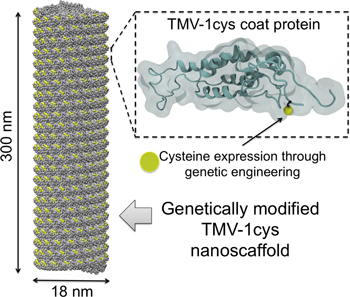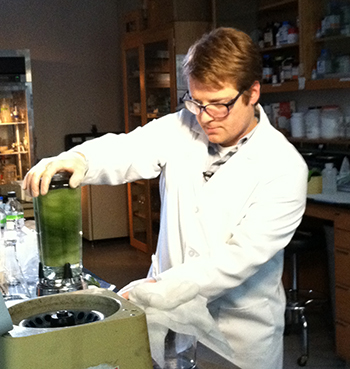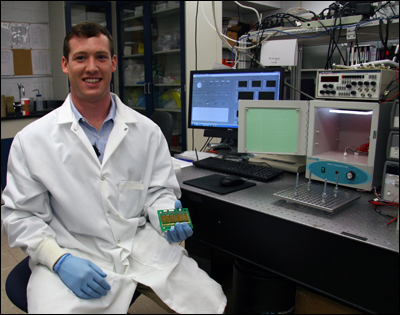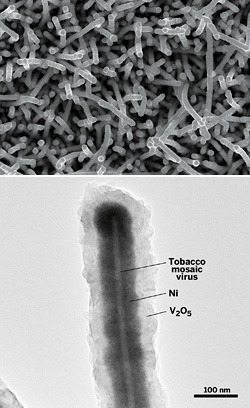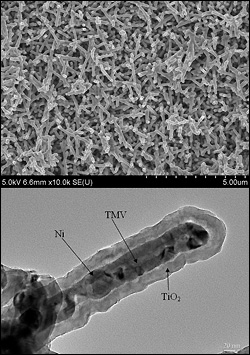News Story
New TMV supercapacitor work featured in Nanotechweb article
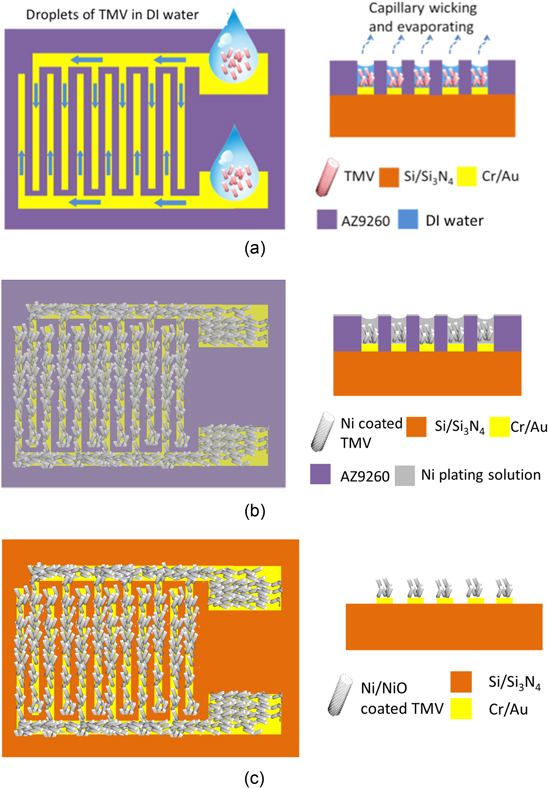
The formation of microfluidic channels in the photoresist layer allows a suspension of TMV particles to be drawn through by capillary action. As the water evaporates, the virus particles self-assemble on the electrodes (a). Nickel-coating the virus particles (b), removing the photoresist, and annealing at 300 °C, leaves a porous, high-surface-area electrode standing above the substrate (c). Courtesy Nanotechnology.
New work by University of Maryland nanotechnology researchers is being featured in an article on the website nanotechweb.org.
The article details the results of a new paper published in the journal Nanotechnology, Biofabrication of Tobacco mosaic virus-nanoscaffolded supercapacitors via temporal capillary microfluidics. The paper describes a microfabrication method that uses capillary channels in a photoresist to position nanorods of the tobacco mosaic virus (TMV).
The interdisciplinary researchers include alumnus Faheng Zang (EE Ph.D. 2016; currently a postdoctoral researcher at Princeton University), current EE Ph.D. student Sangwook Chu, alumnus Konstantinos Gerasopoulos (EE Ph.D. 2011 and former postdoc; currently a research scientist at JHU Applied Physics Laboratory), Professor James Culver (Plant Sciences and Landscape Arcitecture) and ISR Director Reza Ghodssi (Electrical and Computer Engineering and ISR). Zang, Chu, and Gerasopoulos all were/are students of Dr. Ghodssi.
The researchers used a quick and simple new approach to create a supercapacitor with nanostructured electrodes. The method can be applied to construct many kinds of microdevices requiring high surface areas.
Read the Nanotechweb article by Marric Stephens here.
Published June 16, 2017
